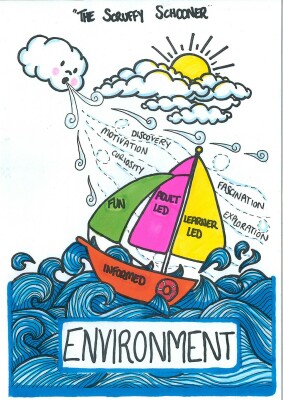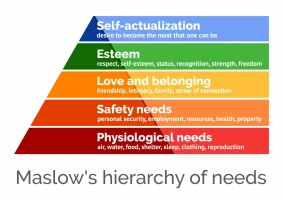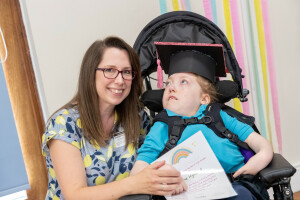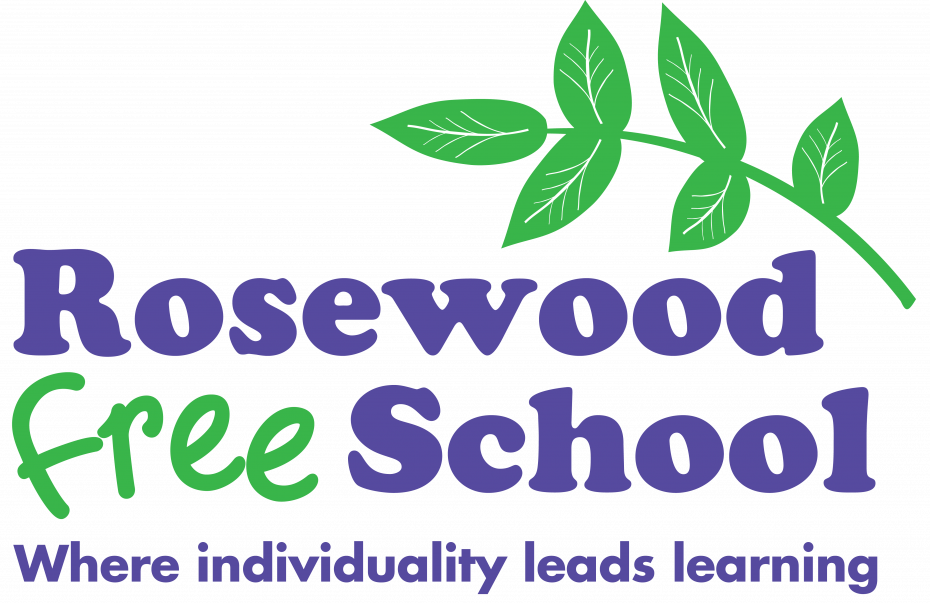Learner-Led Teaching
Where Individuality Leads Learning is the key to teaching and learning at Rosewood.
Please click into the sections below to read more about our personalised approach.
At Rosewood we have adopted the 'Informed Scruffy' approach.

This approach is based on Dr Penny Lacey's 'SCRUFFY' targets (Student-Led, Creative, Relevant, Unspecified, Fun for Youngsters) which we have adapted. Our staff sail the 'Scruffy Schooner' with children on a daily basis.
In practice, this means that we use our detailed assessments about children, who they are and how they learn, to truly personalise the learning offer that they receive every day. Staff are trained to be able to adapt their approach in order to suit each child's developmental level in order to individualise the ways they work with each learner.
Dependent on learner wellbeing, the activity, and many other factors, the team will adjust their sails to ensure that learning continues throughout the day for all learners.
Please do ask your child's class teacher if you would like any more information about this.
 We know that high learner involvement leads to learning.
We know that high learner involvement leads to learning.
Based on the work on Experiential Learning by Ferre Laevers, we have created individual 'Involvement Indicators' for each child. These help us to identify the signs that they are engaged in high level learning.
When learners show signs of level 5 involvement, we know they are learning. If they show signs of level 1 or 2 involvement we will change our approach or activity to help maximise learning.
Do ask our team what a double decker has to do with involvement!
Pre-subject specific learning is reported through the Engagement Model.
The Engagement Model areas identified in the Rochford Review (2016) also heavily influence our practice, and form an integral part of the way we observe and support Scruffy learning.
These skills are assessed via our Cognitive Key skill strands: Responsiveness, Curiosity, Discovery, Investigation, Initiation, Persistence and Anticipation. We report on this ipsatively at Annual Review.
At Rosewood the learners lead - and as practitioners we completely respect this. We aim to provide a learning environment that is appropriate, fun, and challenging.
When moving around the school you may notice that we enter classrooms quietly; we don't knock, and we won't enter if the blinds are down. If we do walk into a room we will wait to catch someone's eye - we don't want to interrupt an important learning moment for a learner.
In the corridors we are also mindful of learning that is happening and may not speak to a learner who is concentrating hard on using their walker, for example.
We are careful about acoustics and our 'auditory environments', we aim not to have any unnecessary talk in our classrooms, and are considerate about where learners are positioned, and the sounds that are being made throughout the day. We give similar attention to our 'visual environments' and take care with light levels as well, in order to ensure optimum learning conditions.
The people who form part of each learner's environment are also really important, including families and other professionals. Our language is consistently appropriate, necessary and respectful - we speak to our learners and not about them.
Our resources in school are carefully chosen to support learners' developmental levels as well as their chronological age.
Wellbeing is an important component of learning.

We have learned from Maslow and his hierarchy of basic needs, and we know that children will not be in a good place to learn if they are tired, ill, hungry, thirsty, or uncomfortable - no-one can learn unless their basic needs are met.
We make sure that we meet learner needs in an individualised way.
Preparation for learning can take as long as a learner needs it to, and might include:
-
Passive movements - before any physical work we aim to warm up muscles carefully, giving time for senses to be awakened
-
Positioning - the Rosewood team are trained by the physiotherapist and occupational therapist about functional positions for learning.
-
Recognising the value of relationship within learning
-
Changes of approach - sometimes a learner might need the environment to be quietened, and at other times learners might need some excitement.
-
Taking time for learners to be involved
A key part of our learner-led approach is to give our children and young people meaningful sensory experiences which help them to express their developing sense of awe and wonder. We aim to present resources and experiences in an invitational and playful way so that we can enter into and share this with them, so that learning is a shared experience of curiosity and discovery together.
Classes offer some topic based activities each term or half term, which provide opportunities for encountering an enriching array of different experiences. Topics will be adapted to meet the current needs of each class group.
Additionally, we regularly hold Family Enrichment Days, during which families are invited to come and experience an activity in class alongside their child. These days are a lot of fun!
Collective worship is an integral part of our curriculum; learners take part and are encouraged to respond.
We use cues and routines within our assemblies in order to maximise learners' potential to participate. Festivals and celebrations are marked by classes and the whole school community. These help learners to develop spiritual awareness, and to have opportunities to be still and reflect on symbolism, people, and stimuli relating to a theme.
Each class has a daily act of worship which takes place at the end of the day in the form of a reflection time before singing or saying goodbye.
 We love celebrations at Rosewood! Everything from the smallest achievements to birthdays and festivals can and will be celebrated in style.
We love celebrations at Rosewood! Everything from the smallest achievements to birthdays and festivals can and will be celebrated in style.
Particular achievements during each week are recognised and acknowledged with certificates given during assemblies. Graduations from different phases of education are bigger events when families are invited to join us to celebrate transition into the next stage of school life, and beyond.
Celebrations give our learners the opportunity to develop a sense of self-worth, and to know that they are valued, belong, and are cared for within the school community.
Families and staff alike value the opportunity to demonstrate appreciation for our learners and everything they have achieved.

